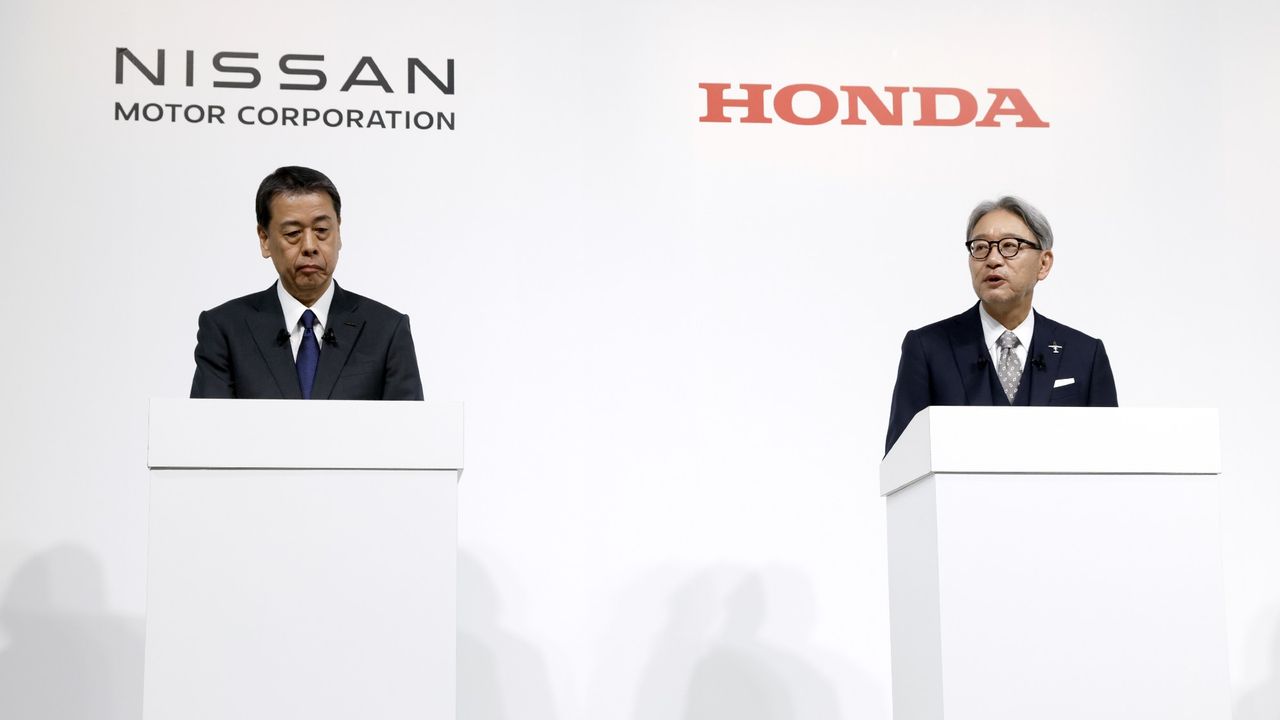- Posted On:2025-01-03 17:01
-
929 Views
What went wrong at Nissan?
The Japanese car industry was once ascendant. Now it appears ready to consolidate in the face of challenges from Chinese EV makers like BYD: Nissan and Honda are in talks for a possible merger.
The two companies are looking to "combine resources in order to remain competitive" in the face of China's powerhouse auto industry, said CNN. But the need is particularly acute for Nissan, which saw its strategic alliance with French automaker Renault "collapse" in the wake of the COVID-19 pandemic. That left Nissan in "desperate need of a larger merger partner." How much trouble is Nissan facing? Profits for the six-month period ending in September "plunged" 94%, said CNN. Some observers suspect that left alone, Nissan "could face bankruptcy as soon as 2026."
Nissan was "once a symbol of Japan's carmaking prowess," said The Wall Street Journal. In recent years, though, it has stumbled. The company has been "slower than rivals in refreshing its lineup" and has fallen behind in the race to build electric vehicles. Nissan also "has yet to fully recover" from the 2018 arrest of former executive Carlos Ghosn for financial crimes. (He ultimately fled Japan in a private jet.) But talks of a merger have some American auto dealers hopeful. "Honda is a better-run company than Nissan," said Adam Lee, whose Maine company includes two Nissan outlets and a Honda dealership, to the Journal.
Losing ground in China
The Honda-Nissan talks are a sign of the "existential threat of Chinese EVs to Japan," Kantaro Komiya and Yoshifumi Takemoto said at Reuters. Both companies have lost ground in China as BYD and other domestic carmakers capture that rising market. That's not just bad for Honda and Nissan — it's a threat to the Japanese car industry, which is "the strongest sector in the world's fourth-largest economy," Komiya and Takemoto said. "If the auto industry doesn't improve, then the whole of Japanese manufacturing will not get better," said Takumi Tsunoda, an economist at Shinkin Central Bank Research Institute.
Keeping pace with Chinese automakers means "rolling out electric vehicles" while also selling the "petrol cars that will finance the shift," said The Economist. The problem for Nissan: Investors are "unconvinced that it has a clear strategy for EVs or hybrids." A company containing Honda and Nissan together "could invest more in technology to catch up with rivals," said The Economist.
'Egos and infighting'
The challenge? Carmaker mergers "often falter," said The New York Times. That's because the process of combining two large manufacturing companies requires "reconciling different technologies, models and approaches to doing business." The 1998 merger of Chrysler and Daimler shows that it's difficult to smooth those differences when hundreds of thousands of jobs are on the line. "You try to put two of them together and you run into a lot of egos and infighting," said Thomas Stallkamp, a consultant who was involved in that merger.
"A merger, should it take place, won't be a magic fix for either company," Rob Stumpf said at InsideEVs. The process of joining the companies together could take up to five years, according to one analyst, and "that leaves a lot of time for the competition to sprint ahead of both brands."

